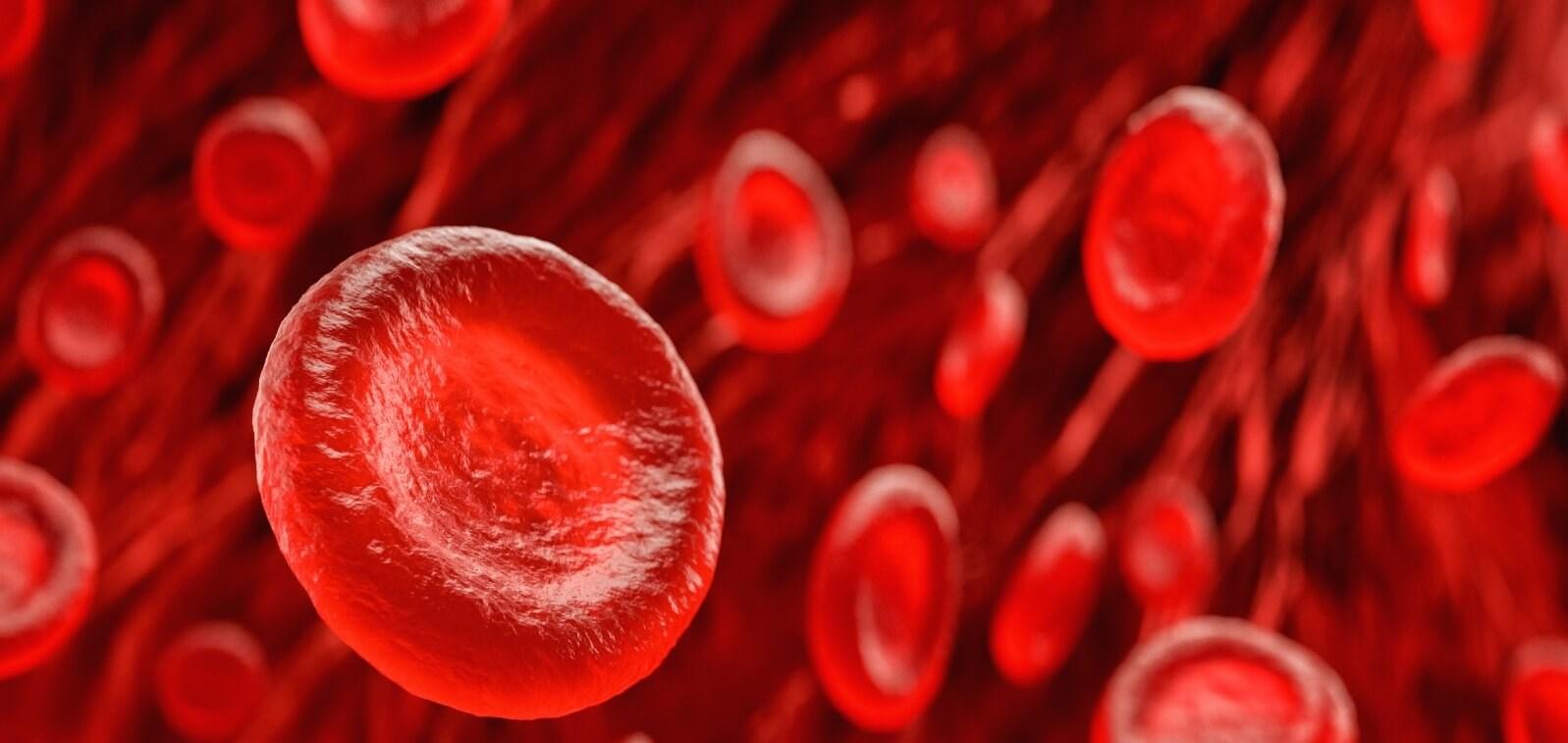
















The faculty at Albany College of Pharmacy and Health Sciences are a distinguished group of scholars with research interests covering all areas of health science, including, but not limited to, clinical, biomedical, pharmaceutical, and behavioral. Faculty are engaged in research that aims to: 1) disentangle the mechanisms of complex diseases, 2) improve diagnostics, 3) characterize disease markers, 4) identify new and effective drug therapies, 5) delineate the challenges associated with delivering effective healthcare to diverse populations, 6) improve patient-provider relationships, 7) address social determinants of health, and 8) increase the uptake of
Many of our faculty explore research questions that are supported by federal granting agencies, such as the National Institute of Health (NIH), pharmaceutical and biotechnology companies, and private foundations. Their work is regularly presented and discussed at prominent national and international conferences and is published reviewed journals. Faculty at ACPHS are encouraged to collaborate with individuals both within and outside of the College, which provides additional opportunities and resources that enhance our research environment. Research facilities and resources on our campus as well as around the Capital Region are available and accessible, further enriching productivity and expanding experiences for both students and their mentors. Faculty work closely with student collaborators, providone interactions that result in deepening the students’ research training. With over 30 research faculty thoroughly committed to training the next generation of healthcare professionals, our students graduate poised to become leaders in pharmaceutical and biotechnology companies, healthcare Institutions, government entities, nonprofit organizations, and academia.
This catalog is a listing of our research faculty, including brief bios as well as their contact information. Please feel free to reach out with any questions.
ACPHS faculty are committed to educating the next generation of leaders to improve the health of our society. The College strives to prepare students for transformative health careers to solve problems that change the world.





Professor
Department of Pharmacy Practice
OB 201
Tel: 518-694-7272
laurie.briceland@acphs.edu
My current research endeavors fall under the umbrella of Scholarship of Teaching and Learning, with emphasis on critical reflection; professional identity formation (PIF)/student professional development; student success; and curricular and cocurricular design, delivery, and assessment. Recently completed projects include: student engagement with visual communication strategies (infographic creation) to increase P1 students’ awareness of Impostor Phenomenon; exploration of the impact of reflecting on pharmacy experts’ written career guidance on student PIF; application of structured selfreflection to improve reflection quality and assessment on Advanced Pharmacy Practice Experiences (APPEs); exploration of practice site contributions and professionalization impact of student engagement on oncology APPEs; assessment of the impact of student pharmacist participation in the White Coat Ceremony on professionalization; and exploration of the impact of engaging students in creating experiential success plans.

Associate Professor
Department of Allied Health Sciences
HAB 104B
Tel: 518-694-7362
Allison.burton-chase@acphs.edu
My primary area of research is the behavioral aspects of cancer prevention and survivorship in families with hereditary cancer syndromes. Specifically, I am interested in developing interventions to improve health behaviors in this population, with a focus on improving patient-provider communication. Recent projects include assessing advanced care planning in individuals with Lynch syndrome, examining screening behaviors and patientprovider communication regarding gynecologic cancer risk for women with Lynch syndrome, and determining factors that lead individuals with Lynch syndrome to terminate their provider relationships.

Assistant Professor
Department of Pharmacy Practice
OB 212J
Tel: 518-694-7144
david.butler@acphs.edu
Dr. Butler’s research interests are varied and include topics such as multi-drug resistant Gramnegative bacteria, antimicrobial pharmacokinetics/ pharmacodynamics, epidemiology and outcomes research through healthcare databases, as well as novel approaches to translational, clinical, and patient-centered outcomes research.


Associate Professor Program Director, Doctor of Pharmacy Department of Pharmacy Practice
OB 211V
Tel: 518-694-7875
katie.cardone@acphs.edu
Dr. Cardone’s practice expertise is in ambulatory care nephrology, including dialysis and chronic kidney disease (CKD); she also currently serves as the director of clinical pharmacy services at The Collaboratory, a public health space in Albany, operated by the college. Through her clinical experiences and role as residency program director of PGY2 programs in nephrology and ambulatory care pharmacy, Dr. Cardone has gained a broad understanding of the needs of patients at risk or with CKD. Her research has focused on drug dosing and pharmacy practice delivery models for patients with CKD including those on dialysis. Dr. Cardone is a boardcertified ambulatory care pharmacist and is a fellow of the National Kidney Foundation, the American Society of Nephrology, and the American College of Clinical Pharmacy.

Associate Professor
Associate Dean of Pharmacy
OB 212B
Tel: 518-694-7225
joseph.carreno@acphs.edu
Dr. Carreno’s research interests focus on the application of technology and epidemiologic methods to evaluate and develop antimicrobial stewardship programs. Specifically, Dr. Carreno is interested in pharmacists’ roles in active surveillance, anti-infective related adverse event prevention, and bacterial epidemiology of infectious diseases.

BCACP
Assistant Professor
Department of Pharmacy Practice
OB 210D
Tel: (518) 694-7268
Email: jacqueline.cleary@acphs.edu
Dr. Cleary’s overall research focus is in the area of pharmacy practice, specifically in pain, addiction, and pharmacogenomics. Dr. Cleary’s practice site is Saratoga Hospital Medical Group which is a collaboration of several primary care offices with various specialties. Summer research student research opportunities would focus on collecting and analyzing data surrounding an opioid grant the medical group received. This grant specifically created a position for a pain management pharmacist to work on reduction of morphine equivalence, reduction in the co- prescribing of benzodiazepines and opioids, increasing yearly urine drug screening and pain agreement compliance, as well as in-home naloxone use. This work will join a collection of other research highlighting the value of a clinical pharmacist in this specialty to help advocate for more ambulatory care clinical pharmacy positions.



Assistant Professor
Department of Life Sciences
OB 211Q
Tel: (518) 694-7483
payel.datta@acphs.edu
Medicines aim to prevent and/or treat diseases. Medicines comprise of diverse drug products, including biopharmaceuticals and small-molecule drugs. Biopharmaceuticals are large biomolecules produced using cell systems. Small-molecule drugs are synthesized chemically. The journey a medicine/drug takes from its discovery to its approval is highly regulated. The most critical questions include whether the drug is safe and effective. Our research aims to explore the molecular mechanisms of drug action. Specifically, we employ cell-based screening platforms (2D and 3D cell culture systems) to examine the effects of chemicals and biomolecules on cellular processes, including cell growth, metabolism, migration, signaling, and gene expression. Additionally, we aim to investigate the impact of intrinsic and extrinsic factors on drug quality. Through these combinatorial approaches, the research aims to enhance the understanding of the molecular mechanisms underpinning drug efficacy and potential toxicity.

Associate Professor and Chair, Department of Pharmaceutical Sciences
Biosciences Research Building (BRB) 301B
Tel: 518-694-7387
richard.dearborn@acphs.edu
Dr. Dearborn’s research focuses on development neurobiology in the fruit fly, Drosophila, in three primary areas: 1) The elucidation of vitamin D3 upregulated protein 1 (VDUP1) tumor suppressor function during brain development, including VDUP1’s role in neural stem biology; 2) Hedgehop (Hh)dependent regulation of VDUP1 in cell proliferation, including how tumor cell-specific differences in Hh signaling affect pharmacological treatment strategies; 3) Molecular characterization of Eph receptor signaling pathways, which regulate axon guidance, vascular growth and tumorigenesis, through the study of several novel pathway associated genes. The lab emphasizes molecular-genetic approaches in these studies, each with clinical and translational relevance.


Associate Professor
Department of Allied Health Sciences
HAB 109
Tel: 518-694-7259
barry.decoster@acphs.edu
My research as a bioethicist focuses largely on ethical and philosophical issues in medicine and science, with an emphasis on the ethical reasoning of lay people/patients. My current projects focus on: (1) issues in LGBTQ health, women’s health (especially birth), and racial minority health; (2) questions about the medicalization of healthcare (looking at how traits like birth, death, and sexuality, that were once considered normal variations are instead now seen as issues for clinical discussion and treatment);
(3) virtue ethics within clinical and scientific settings (e.g., How to be a morally “good” patient? What character traits are needed for collaboration in scientific research? What shapes “integrity” of researchers?), and (4) ethical and policy concerns for public health programs involving the use of anonymous expedited partner therapies (EPT), the practice of filling anonymous antibiotics prescriptions to treat sexually transmitted infections.

Associate Professor
Department of Allied Health Sciences
HA 117
Tel: 518-694-7139
paul.denvir@acphs.edu
My research is centered on interpersonal communication in healthcare settings. In the area of providerpatient communication, I’m identifying strategies for addressing potentially sensitive health topics, such as diet, exercise, substance use, and sexual activities. I am also interested in the interpersonal processes involved in healthcare teamwork, with recent work emphasizing the communication dynamics between pharmacists and physicians. My most recent scholarship projects are focused on game-based teaching and learning of health communication skills. In an academic context, well-designed games and simulations provide students with immersive educational experiences that engage creativity, critical thinking, social interaction, and collaborative problem-solving. My most recent project is an original academic role-playing game in health systems and health teamwork called “Save Our City.” I designed the game to provide players with opportunities to “walk a mile in the shoes” of various health professions to better understand their contributions to the health system.



Assistant Professor
Department of Allied Health Sciences
HAB 121A
Tel: 518-694-7731
margaret.doll@acphs.edu
My research interests are related to the epidemiology of vaccine-preventable diseases. Specifically, I am interested in the evaluation of the uptake of vaccines in a population (i.e., vaccine coverage), the effects of vaccines, vaccine programs, or vaccine policies on disease outcomes, and how we can optimize epidemiological methods to evaluate vaccine effects. Recent projects include a primary survey to evaluate the impact of the New York State (NYS) legislation to remove religious vaccination exemptions on NYS schools, secondary analyses of national survey data to evaluate U.S. trends in pediatric vaccine hesitancy, and evaluation of the effects of mandatory healthcare worker influenza vaccination laws on patient influenza outcomes using administrative medical records data.

Associate Professor and Chair, Department of Pharmacy Practice
OB 212N
Tel: 518-694-7310
darren.grabe@acphs.edu
Dr. Grabe’s research interest is nephrology with a focus on patients with chronic kidney disease (CKD) stages 1-5, with primary attention to those patients not yet on dialysis. The major research objective is to characterize and optimize pharmacotherapy in this specific population to decrease hospital admissions and decrease potential and actual drug-related problems.


Professor
Department of Life Sciences
OB 211S
Tel: 518-694-7238
Martha.hass@acphs.edu
Dr. Hass’ research integrates synthetic organic chemistry, pharmaceutical formulation and stability, biochemical assays, medicinal chemistry, and pharmacology. Her laboratory provides unique training opportunities for research students in the areas of drug synthesis, pharmaceutical formulation, topical drug delivery and assessment of drug efficacy. Major current projects are focuses on the synthesis and activity of new drugs for use as topical agents to treat skin diseases. One group of novel co-drugs are designed to replenish natural antioxidants in the skin for enhanced and extended photoprotection relative to existing topical products. Other topical agents under development utilize the co-drug approach to target hyperproliferation of keratinocytes and inflammation associated with psoriasis.

Associate Professor
Department of Allied Health Sciences
HAB 112
Tel: 518-694-7359
kevin.hickey@acphs.edu
My research is on spatialities in Africana literatures, visual arts, and music with focuses on travel, gender, food culture, ecology and ecophilosophies, birds, and Illichean conviviality.


Assistant Professor
Department of Life Sciences
OB 211M
Tel: 518-694-7260
pradeepa.jayachandran@acphs.edu
Antimicrobial resistance (AMR) poses a significant threat to humans, animals, and the environment. My primary research interest is understanding the genetic basis of antibiotic resistance in methicillinresistant Staphylococcus aureus (MRSA), a grampositive pathogen that causes nearly 11,000 deaths each year in the United States alone. My research focuses on the role of SOS and stress (ROS, antibiotic) response in acquisition of antibiotic resistance in Staphylococcus aureus. Bacterial DNA damage stress response, also known as SOS response, includes a conserved set of genes that are induced under DNA damaging conditions. Among these are genes involved in DNA repair pathway and errorprone polymerases. The increased expression of error-prone polymerase result on increased rate of mutations, which contribute to antibiotic resistance. RecA and LexA are the main modulators of this SOS response. Two main projects in the lab are: 1) studying the effect of RecA inhibitors on the emergence of antibiotic resistance; 2) identifying genes that play a role in SOS and stress response using a transposon mutant library. These studies will help us understand the pathogenicity and the mechanism of antibiotic resistance in MRSA and provide insights for the development of new therapeutics.

Associate Professor
Department of Pharmaceutical Sciences
Biosciences Research Building (BRB) 105B
Tel: 518-694-7175
kideok.jin@acphs.edu
About 70% of estrogen receptor (ER) positive breast cancers have a significantly reduced risk of invasive breast cancer through the use of various endocrine therapies. Despite the relative safety and significant anti-neoplastic and chemopreventive activities of tamoxifen and aromatase inhibitors, many initially responsive breast tumors develop resistance and ultimately recur. The long-term mission of my laboratory is to understand the steps of the endocrine-resistant process in order to develop therapeutic approaches to prevent and treat endocrine-resistant breast cancer effectively. The ultimate goal of my research is to bring therapies into the clinic that will improve the survival of metastatic breast cancer patients. My current research is to investigate the secretome leading to the endocrine resistance in the crosstalk between endocrine-resistant breast cancer and tumor microenvironment. In addition, I have investigated the role of HOXB7 as an oncogenic transcription factor in breast cancer.

Professor
Department of Pharmacy Practice
OB 212M
Tel: 518-694-7239
michael.kane@acphs.edu
Research Interests:
Assessing the safety and efficacy of new drugs in the management of diabetes mellitus and osteoporosis.


Associate Professor
Department of Life Sciences
OB 017D
Tel: 518-694-7332
timothy.larocca@acphs.edu
Dr. LaRocca’s research focuses on different forms of programmed cell death in eukaryotic cells. Programmed cell death is the controlled death of eukaryotic cells in response to specific, external stimuli or internal cellular damage. Several different programmed cell death pathways exist but apoptosis and the more recently discovered necroptosis are the major pathways with each serving as backups to one another. There are currently three broad projects in Dr. LaRocca’s lab that focus on programmed cell death. One project explores the effect of hyperglycemia (high glucose concentrations as in diabetes) on apoptosis and necroptosis and how this condition may shift the balance of programmed cell death. Another project aims to define programmed cell death pathways activated in response to a broad group of bacterial virulence factors called pore-forming toxins. This project also aims to explore differences in programmed cell death in response to different pore-forming toxins. The third project is a continuation of Dr. LaRocca’s previous discovery of necroptosis in human erythrocytes (red blood cells, RBCs). As RBCs are quite different from the rest of the cells in humans (they lack nuclei and mitochondria) it is of interest to explore the mechanism of this pathway in RBCs and its outcomes compared to necroptosis of nucleated cells.



Professor
Executive Director, CBET
Stack Family Center for Biopharmaceutical Education and Training
OB 212R
Tel: 518-694-7484
michelle.lewis@acphs.edu
As the Executive Director of the Stack Family Center for Biopharmaceutical Education and Training, my research focuses on the generation of novel bioproducts as reagents and tools to assist the broader scientific community. Recent projects include the generation of alpha synuclein for an in vivo animal model of Alzheimer’s, interleukin for a canine dermatitis model, catalase for a novel enzymatic assay, and spike protein for surveillance surveys of COVID19 by the CDC. This diverse portfolio of products is produced by genetic and environmental manipulation of cells to transform them into tiny factories. These multidisciplinary projects utilize genetics, molecular biology, chemistry, and engineering principles to weave academic discovery with industrial application.

Professor
Department of Pharmacy Practice
OB 212R
Tel: 518-694-7292
thomas.lodise@acphs.edu
Tom Lodise, PhD, specializes in infectious diseases with a research focus in clinical outcomes of antimicrobials. Dr. Lodise was the lead author and principal investigator on the PROVIDE trial, a seminal work that informed the updating of national practice guidelines for vancomycin. Vancomycin is the current drug of choice for confirmed and suspected methicillin-resistant Staophylococcus aureus infection, an antibiotic-resistant Gram-positive bacterial infection and noted “Serious Threat” by the Centers for Disease Control and Prevention (CDC). His work with minocycline on the ACUMIN trial informs the clinical care of patients with Acinetobacter baumannii infections, a resistant Gram-negative bacterial infection listed as an “Urgent Threat” by the CDC. Dr. Lodise has authored over ten papers in 2022 alone, many with students as co-authors. Dr. Lodise is currently funded to work on a collaborative project with the National Institute of Allergy and Infectious Diseases (NIAID), coordinated by Duke University. Dr. Lodise was the 2012 and 2021 ACPHS Researcher of the Year.
 MEENAKSHI MALIK, DVM, PhD
MEENAKSHI MALIK, DVM, PhD
Professor
Associate Dean of Health Sciences
Department of Life Sciences
OB 211D
Tel: 518-694-7168
meenakshi.malik@acphs.edu
Dr. Malik’s laboratory studies the complexities of host pathogen interactions for the development of improved prophylactics and therapeutics against important bacterial infections. She has a three-year grant by the National Institutes of Health to investigate the mechanisms by which Francisella tularensis, a category A biothreat agent survives inside the immune cells and suppresses the protective immune responses. A second area of research in the lab is to investigate the molecular mechanisms leading to the development of antibiotic resistance in methicillin resistant Staphylococcus aureus (MRSA) strains.


Assistant Professor
Department of Life Sciences
OB 211C
Tel: 518-694-7299
anne.mccabe@acphs.edu
My research interests are focused on understanding mechanisms of antibiotic resistance in the opportunistic pathogen Klebsiella pneumoniae. Designated as an ESKAPE pathogen of high concern, Klebsiella pneumoniae is a frequent cause of hospital-acquired Gram-negative multi-drug resistant infections, and treatment options are becoming increasingly limited. As combination therapies of two or more antibiotics become common in treatment, understanding how the development of resistance to one antibiotic may influence susceptibility or resistance to others provides insight into identifying synergistic treatments options that can be more effective than single-drug therapies. As combination therapies of two or more antibiotics become common in treatment, understanding how the development of resistance to one antibiotic may influence susceptibility or resistance to others provides insight into identifying synergistic treatments options that can be more effective than single-drug therapies. As combination therapies of two or more antibiotics become common in treatment, understanding how the development of resistance to one antibiotic may influence susceptibility or resistance to others provides insight into identifying synergistic treatments options that can be more effective than single-drug therapies.

Associate Professor
Department of Pharmacy Practice
OB 210B
Tel: 518-694-7873
patrick.meek@acphs.edu
Dr. Meek's research interests include investigating ways to prevent treatment failure and adverse drug therapy outcomes for patients with chronic conditions through review of safety reports from clinical trials and from spontaneous reported adverse events received during post-marketing surveillance. Identifying signals of medication intolerance early and addressing identifiable risk factors for appropriate medication use has tremendous potential to improve care and reduce medication adverse events. Additional areas of research interest include the measurement of adherence to chronic drug therapy in the ambulatory care setting and identification of risk factors for medication nonadherence using health care claims data. Because much of his work involves the analysis of administrative claims data, national survey data (including the National Ambulatory Medical Care Survey and the FDA Adverse Event Reporting System), he has extensive experience in the methods of observational research, and in the use of medical and pharmacy data systems for analysis of trends in healthcare utilization and prescribing. He is currently evaluating national trends in the use of gastroprotective therapy for patients at high risk for medication-related gastrointestinal side effects.

Associate Professor
Department of Pharmaceutical Sciences
Biosciences Research Building (BRB) 105C
Tel: 518-694-7883
marcel.musteata@acphs.edu
Dr. Musteata's research interests include the development of analytical technology for pharmacokinetic studies and therapeutic drug monitoring. Students participating in the Summer Research program will apply newly developed pharmacokinetic analysis techniques to simultaneously measure free, total, and normalized concentrations of bioactive compounds. Students will be trained to use liquid chromatography coupled to tandem mass spectrometry for quantitative analysis and Monolix Suite for PK-PD data processing.


Associate Professor
Department of Pharmacy Practice
OB 212Q
Tel: 518-694-7203
nick.odonnell@acphs.edu
The O’Donnell research lab focuses on clinical and translational approaches to optimizing care for patients with infections caused by antimicrobial resistant pathogens. Our primary focus is pharmacokinetic/pharmacodynamic approaches to optimizing dosing and antimicrobial combination selection for highly-resistant gram-negative pathogens. To this end, we have completed studies evaluating combinations of novel and established antimicrobial agents against extensively drug-resistance pathogens such as Pseudomonas aeruginosa and Acinetobacter baumannii, both of which are recognized as critical antimicrobial resistance threats by the US CDC and WHO. Our ongoing work focuses on bacterial exposure-response using humanized exposures of antimicrobials in an in vitro hollow fiber infection model system. This translational approach allows for evaluation of clinically relevant antimicrobial exposures and their effect on bacterial growth and provides data that can be readily evaluated in a clinical setting.

Associate Professor
Department of Life Sciences
OB 211H
Tel: 518-694-7314
michelle.parent@acphs.edu
Vibrio parahaemolyticus, a Gram-negative bacterium, is the leading cause of seafood-related bacterial gastroenteritis in the United States. There is a dearth of literature regarding the host response to infection and pathogen elimination. Our goal is to characterize the host response to infection hoping to understand how it may evade the host innate response and potentially contributing to pathogenesis and death of the infected host. Currently, the laboratory has developed a murine model of systemic infection and is investigating the importance of the innate response in combating infection specifically we are determining how innate-lymphocyte cells (ILC) are playing a role during this infection.
 STACY M. PETTIGREW, PhD, MS
STACY M. PETTIGREW, PhD, MS
Assistant Professor
Collaboratory Director
Department of Allied Health Sciences
HAB 119
Tel: 518-694-7228
stacy.pettigrew@acphs.edu
Dr. Pettigrew has several community-based research projects that focus on environmental health and justice and health disparities in the South End of Albany.




While the federal definition of research is— “research is scientific investigation that leads to generalizable knowledge” —the bottom line is any improvements in quality of life that we have seen thus far, and will continue to see in the future, all have their roots in high quality, high impact research!
‘Promoting Breakthrough Research’ is thus a critical goal in our Strategic Plan!
—Anuja Ghorpade, ACPHS Interim Institutional Official

Associate Professor
Department of Pharmacy Practice
OB 210C
Tel: 518-694-7384
john.polimeni@acphs.edu
As a researcher, John Polimeni’s interests lie in examining the intersections between economic development and the environment. This includes energy efficiency and sustainability, economic development, and sustainable agriculture.


Associate Professor
Department of Pharmaceutical Sciences
Biosciences Research Building (BRB) 104C
Tel: 518-694-7343
manish.shah@acphs.edu
Research Interests: Human Cytochrome P450 (CYP) enzymes.
Project 1: Cytochrome P450 2C9. Genetic variations in CYP2C9 have resulted in altered metabolism of various drug substrates leading to adverse drug reactions. The goal is to characterize genetic variants using structural, biophysical, and functional methods and elucidate the differences in drug binding.
Project 2: Cytochrome P450 2C8. The glucuronide metabolites of the heart disease medications, clopidogrel and gemfibrozil, are known timedependent inhibitors of CYP2C8 that leads to clinical drug-drug interactions with several other drugs. The aim is to determine the interactions and orientation of these glucuronides to CYP2C8 using structural and biophysical methods.
Project 3: Cytochrome P450 2U1. CYP2U1, expressed in brain and thymus, is involved in the metabolism of arachidonic acid and a mutation in this enzyme has been associated with hereditary spastic paraplegia. The research focus of the lab involves determining the X-ray crystal structure of CYP2U1.

Assistant Professor
Department of Life Sciences
OB 211F
Tel: 518-694-7281
nicole.shakerley@acphs.edu
Acinetobacter baumannii is a gram negative opportunistic pathogen that presents both a nosocomial threat and impacts military personnel deployed overseas. Acinetobacter baumannii (A. baumannii) can resist the production of host-derived reactive oxygen and nitrogen species (ROS/RNS) through the upregulation of detoxifying enzymes. ROS/RNS also act as secondary messengers within host cells that can discreetly control cellular function. Constituents of a pathogens’ antioxidant repertoire both protect it from oxidative stress but may also interfere with normal immune function. Several reports have indicated that the A. baumannii genome encodes for several antioxidant systems encompassing more than 11 separate proteins with the capability to detoxify most ROS/ RNS species. Additionally, there have been studies indicating that mutation of key antioxidants, such as the catalase family members (katG and katE) or the superoxide dismutases, is detrimental to bacterial viability. Taken together we hypothesize that A. baumannii antioxidants modulate the intracellular redox environment to control host macrophage signaling and function. By identifying the bacterial redox factors that modulate host immune function we can develop novel therapeutic strategies to combat antibiotic resistant nature of this pathogen. Students wishing to work in my lab will be given projects that investigate the contribution of specific antioxidant mutants to the antibiotic resistance of A. baumannii. We currently have a panel of over 100 antioxidant mutants to screen in relation to several drug classes to investigate novel contributions of these proteins to the pathogens overall resistance profile.
 BINSHAN SHI, PhD
BINSHAN SHI, PhD
OB 211P
Tel: 518-694-7116
binshan.shi@acphs.edu
Research in Dr. Shi’s lab is mostly focused on the detection and analysis of different forms of retrovirus genomes during infection of human cells, and study their influence to host cell death pathways under different cellular environments. The ongoing research includes: 1) The development of a molecular marker indicating HIV-1 de novel infection that can provide guide to the treatment of AIDS disease. 2) The host cell death induced by HIV-1/HTLV-1 coinfection, with emphasis on the understanding of pathogenesis of retroviral infection at molecular level.


OB 211D
Tel: 518-694-7368
Vir.singh@acphs.edu
Our lab is focused on understanding the molecular mechanisms involved in HIV latency and HIV induced neuropathogenesis. HIV latency is the biggest hurdle in achieving HIV cure, thus elimination of latent reservoir still exists as a major challenge for researchers. In absence of cure, HIV infected individuals (despite the low viral loads) are at a higher risk of accelerated aging related comorbidities such as neurological disorders. In our lab, we need enthusiastic young scientists to investigate these two high priority research topics: Project 1— To investigate the consequences of HIV (Human Immunodeficiency Virus) mediated downregulation of Sonic hedgehog (Shh) signaling on brain homeostasis with specific focus on aberrant communication between astrocytes and other brain-resident cells (brain endothelial cells, pericytes, microglia and neurons). Project 2 To characterize select noncoding RNAs for their potential to establish HIV latency via- i) mediating Interferon signaling, and ii) regulating expression of HIV genome by epigenetic mechanisms. Successful completion of this study will identify novel targets and pave the way towards an HIV cure.

OB 211L
Tel: 518-694-7110
eric.yager@acphs.edu
Research in my laboratory is focused on the pathogenesis of, and host defense against, human enveloped RNA viruses. Several notable human diseases are caused by enveloped RNA viruses: influenza, AIDS, hepatitis C, dengue hemorrhagic fever, congenital Zika syndrome, and COVID-19. Novel insights into the relationship between viruses and human cells has the potential to lead to improved therapeutics and vaccines against these diseases. Currently, my team of undergraduate and graduate students are following these avenues of research: 1) the role of host lipid biosynthesis in RNA viral infection and 2) molecular recognition of inflammation during influenza virus infection.


Associate Professor
Department of Pharmaceutical Sciences
Biosciences Research Building (BRB) 105
Tel: 518-694-7859
haian.zheng@acphs.edu
Our research group is interested in Complex Drug Products, such as botanicals, peptides and proteins from the nature. Interdisciplinary methodologies and translational strategies are used to reveal mechanisms of actions, evaluate product quality, and access benefits and risks of these therapeutics. Our recent research projects focus on cannabinoidbased products and their effects through endocannabinoid systems (ECS), especially on the Blood Brain Barrier (BBB) at the interface between the Immune, cardiovascular, and central nervous systems, which is an important therapeutic target for stroke, brain injuries, and neurodegenerative diseases.







